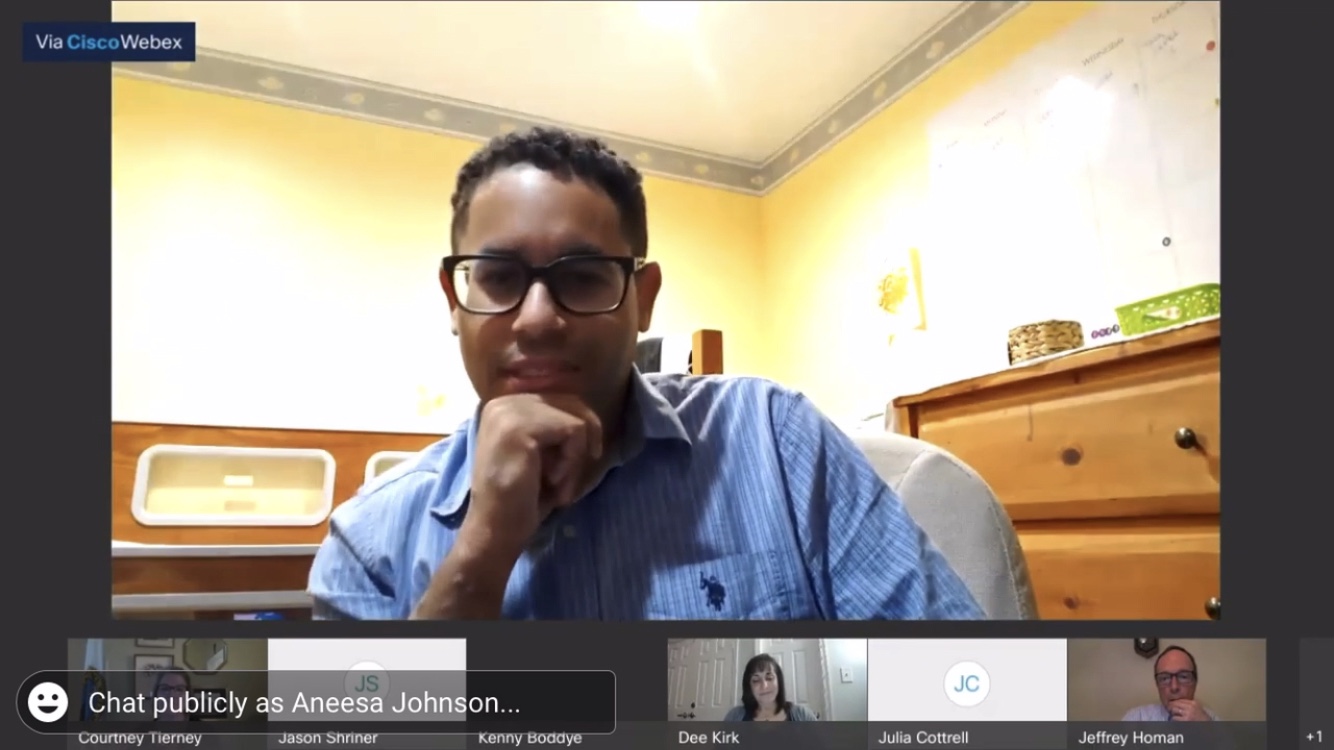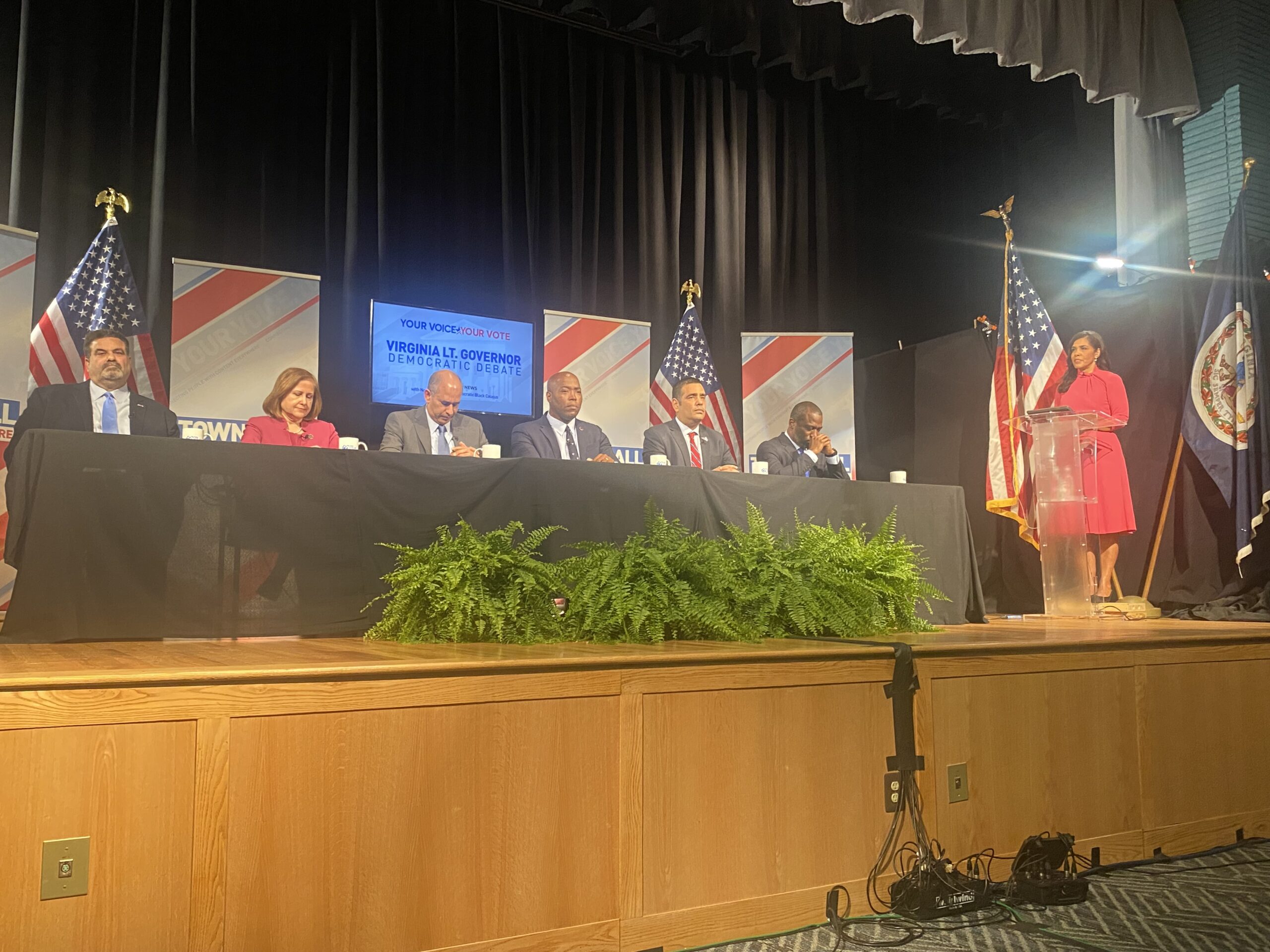Bringing Change to the Juvenile Justice System in Prince William County: How can it be done?
Occoquan District Supervisor, Kenny Boddye, organized a virtual town hall on the future of juvenile justice in Prince William County. The eventbrite posting stated the purpose was for community members to “learn about the research behind these changes [to the juvenile justice system] and what they mean in Prince William County, as we look at progress as well as remaining challenges, both within the justice system and in our communities.”
The panel included: Director of the 31st District Court Service Unit DJJ, Jeffrey S. Homan, Intake Supervisor at the 31st District Court Service Unit DJJ, Greg Porter, Northern Regional Program Manager of DJJ, Dee Kirk, and Director of Social Services in Prince William County, Courtney S. Tierney.
Participants were invited to submit questions in advance of the Town Hall and/or during the event, via the chat feature on YouTube.
The Virginia DJJ Transformation Strategic Framework, which was the cornerstone of the discussion, works to meet the needs of youth and staff in the areas of: safety, connection, purpose, and fairness. The agency plans to reach their goals for youth and staff consist of “three core operational strategies [reduce, reform, replace] as well as a strategy dedicated to sustaining, maintaining, and evaluating our reforms and progress [sustain].” The video below features Virginia DJJ Director, Andrew Block, speaking about how he has transformed the work of the Department and its impact on the incarcerated youth across Virginia.
Tierney began the Town Hall with the DSS’ CIP Update: Juvenile Services Site Update March 17, 2020 PowerPoint. She covered current programming and future plans in a quick overview.
Homan spoke about his agency’s diversion efforts. “We’re trying to keep as many low risk offenders out of our system as possible which is evidenced by our declining numbers over the past ten years.”
Kirk, who works “closely with Mr. Homan and other directors in the region” spoke about working to “meet our agency goal which is to protect the community by helping youth become productive citizens” and their “transformation efforts.”
Porter spoke about the opportunities for diversion. For domestic assaults “a lot of time they’ll be referrals to family services.” Community assaults can be diverted through “anger management programs.” In his view “The ideal for diversion is to look at what the behavior is and what can be done to correct that behavior so the kid does not repeat that behavior.”
Boddye said “there’s some misinformation [and] misconceptions out there that we’re criminalizing our youth on a massive scale” to which Porter clarified “in some situations it’s not that easy [to divert youth], although he detailed the scenarios in which they are able to divert youth. Kirk emphasized that “there is an detention assessment instrument” used in the process.
A participant asked about the Annie E. Casey assessments. Kirk said “their assessment [Annie E. Casey’s] really drove our transformation, they were a large piece of that. So most of the work we’ve spoke to you about they helped and guided us through and we worked very closely with them to make these transformation efforts.”
Boddye relayed the question from a participant asking “Where do gangs fit into the juvenile justice system?” Homan said “Our staff, especially our extensive supervision unit they can supervise our gang involved youth at a high level, but after a lot of gang training.”
Another participant asked the panel to speak about issues of disability specifically related to mental health. “We also have off staff a court psychologist associate” and “we also have a DJJ community services mental health therapist” said Homan.
Tierney spoke about the contributions and the help provided by the Prince William Board of County Supervisors. During final comment she emphasized that “nothing has been decided yet” regarding the new juvenile detention center size and that “we are working through that.”
“Our staff will do everything possible to keep kids in the community, to work with them [and] to refer them to the appropriate services after evaluations” said Homan.
“While we’re a state agency [DJJ] we care about all of the communities we’re in” said Kirk.
“I know there are a lot of unanswered questions folks have” but “we will definitely continue to have ongoing conversations like this on our criminal justice system, racial justice, all of these different issues that impact our community directly” concluded Boddye.



